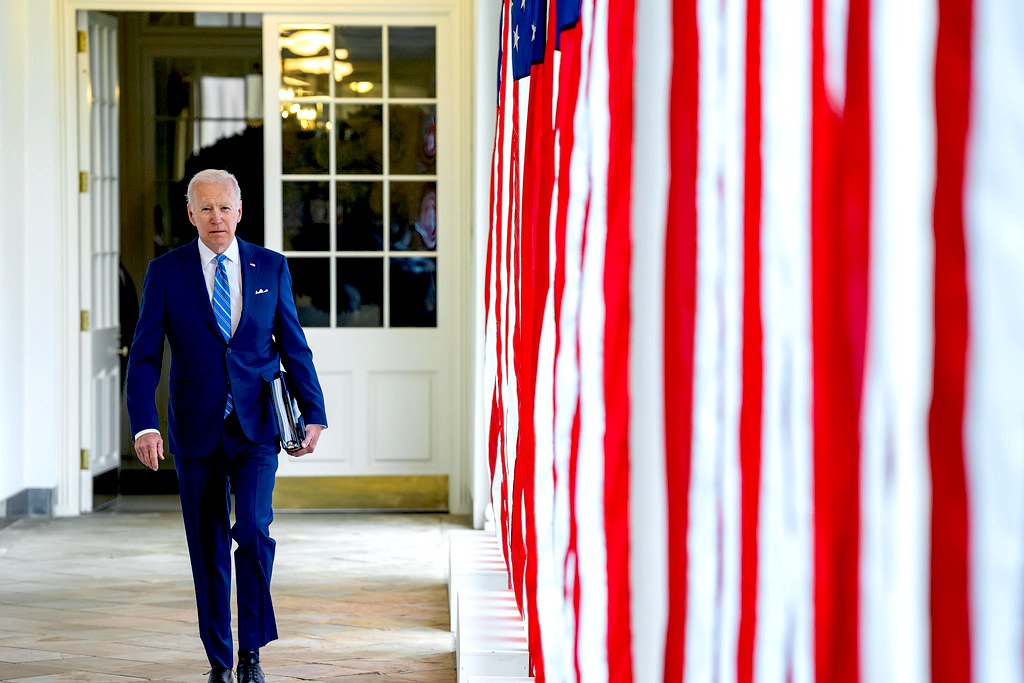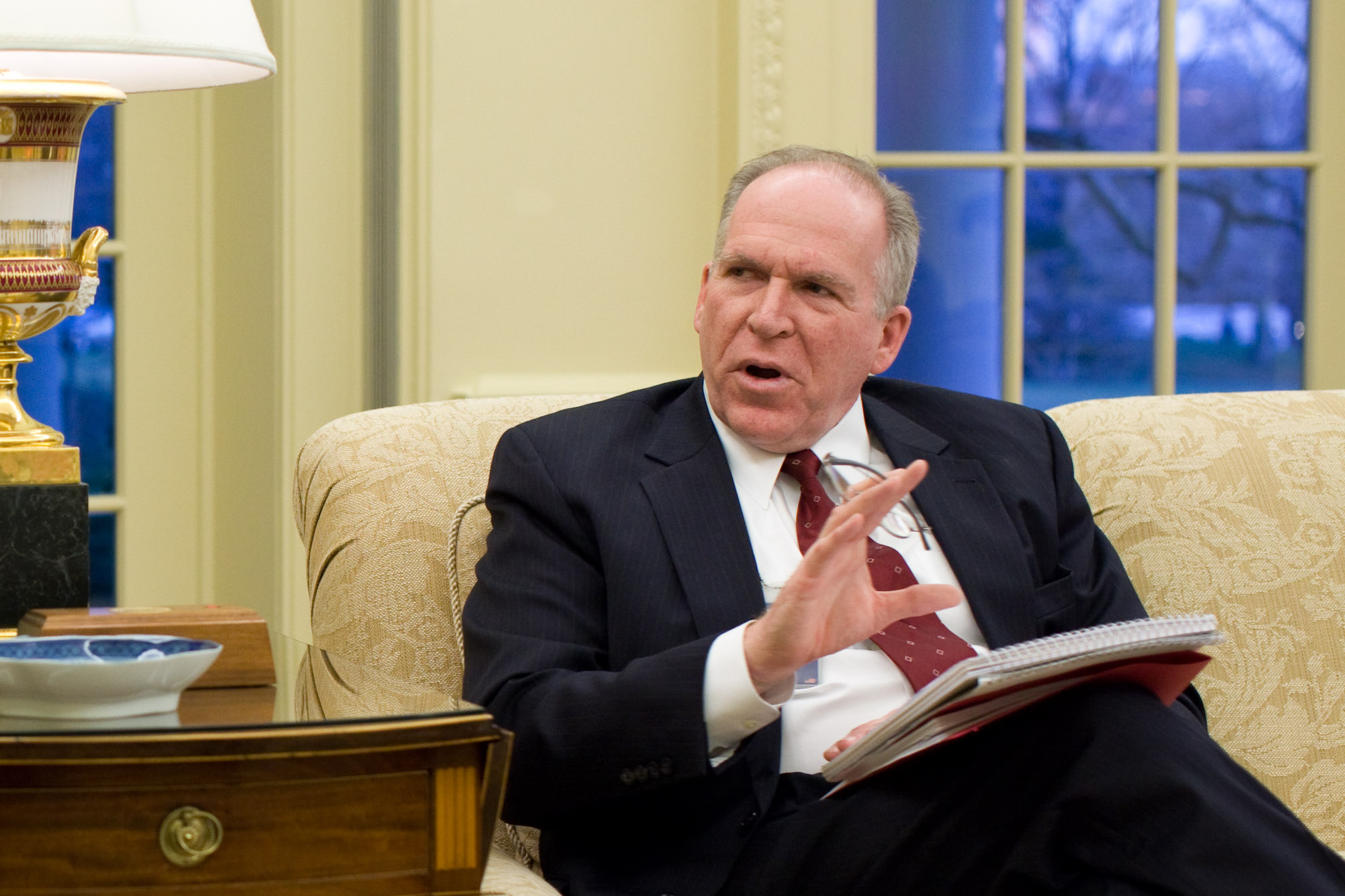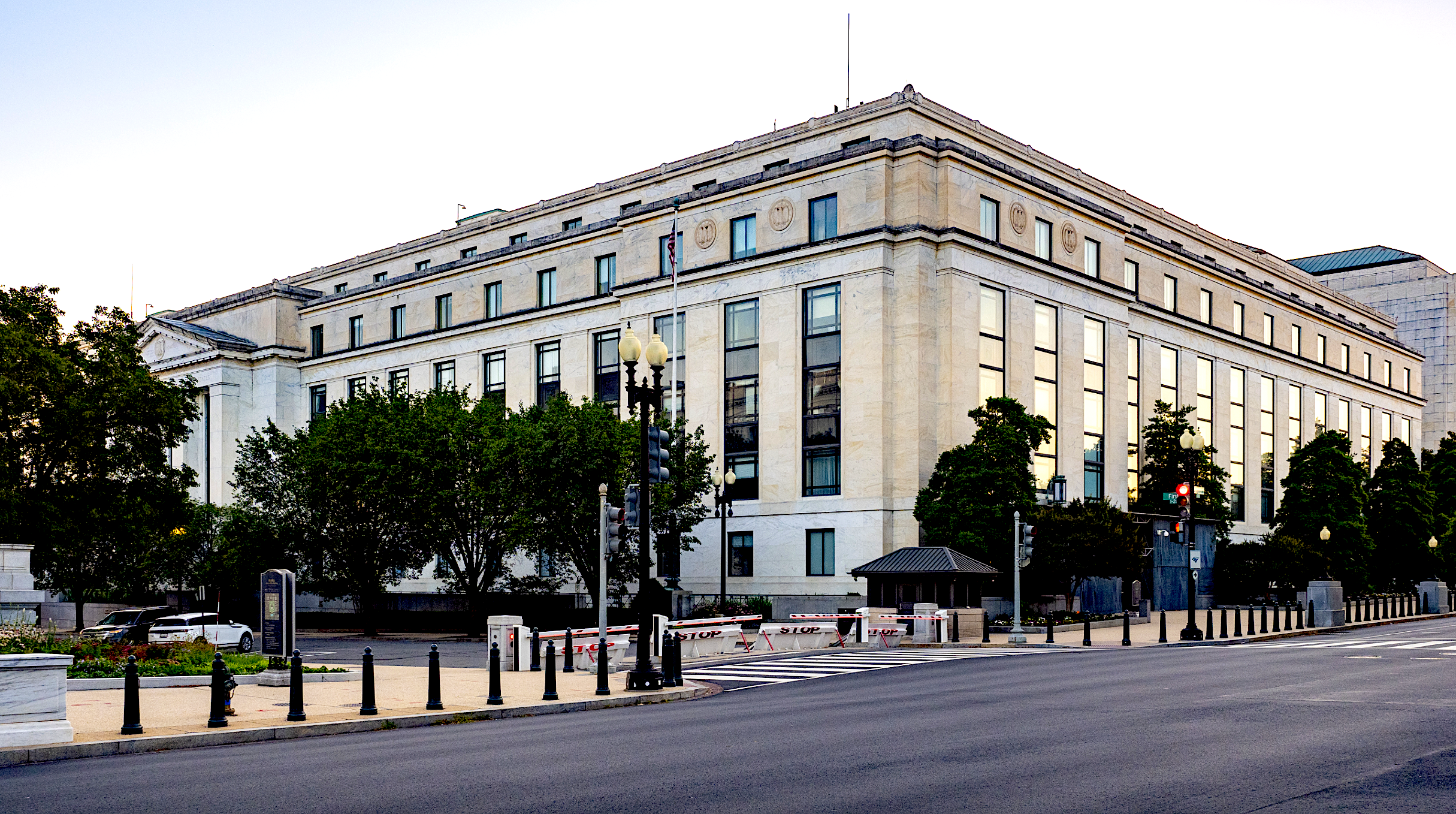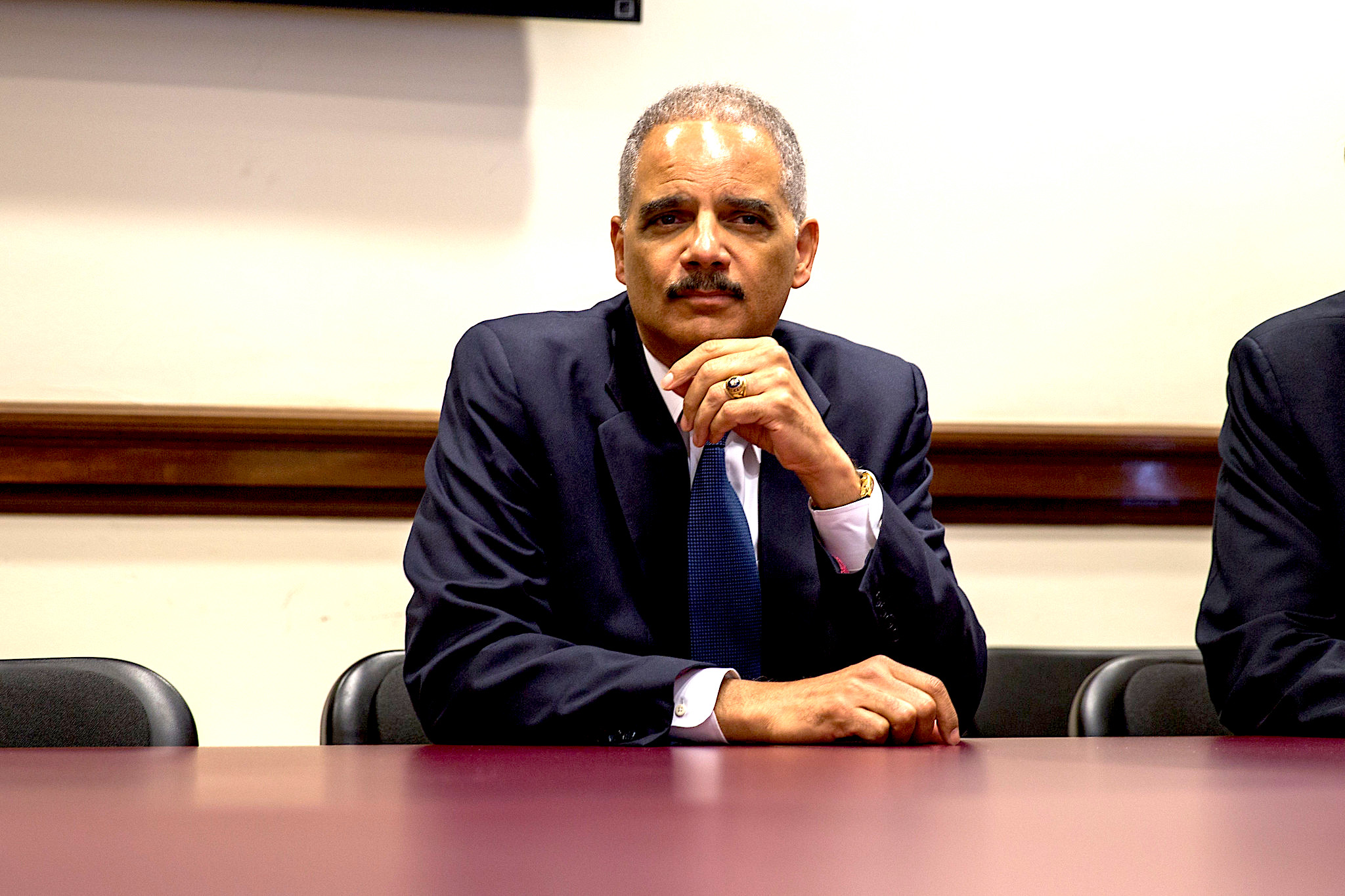Biden spurned the author’s strong case for a pardon while extending it over his entire immediate family, a crooked judge and a slew of others.

U.S. President Joe Biden outside the White Housein May 2022. (White House, Adam Schultz)
By John Kiriakou
Special to Consortium News
 I have a personal policy of trying not to write when I’m angry about an issue. I’ll usually write something while angry, then let it sit for a day, revisit and revise it, and then publish something of which I can be more proud.
I have a personal policy of trying not to write when I’m angry about an issue. I’ll usually write something while angry, then let it sit for a day, revisit and revise it, and then publish something of which I can be more proud.
I’m angry right now, and I’ve decided to write anyway.
It’s no secret that I asked President Joe Biden to pardon me for my 2008 violation of the obscure Intelligence Identities Act of 1981.
My case for a pardon was strong. But I was ignored. Again. And this is despite the fact that Biden pardoned his entire immediate family, a crooked Pennsylvania judge who literally sold children into bondage, and a Chinese spy, in addition to giving “preemptive pardons” to General Mark Milley, Dr. Anthony Fauci, and the members and staff of the Jan. 6 Committee.
First let me offer a little background. In December 2007 I blew the whistle on the C.I.A.’s illegal, immoral, and unethical torture program in a nationally-televised interview on ABC News.
I said that the C.I.A. was torturing its prisoners, that torture was official U.S. government policy and that the policy had been personally approved by President George W. Bush.
The Bush Justice Department investigated me from December 2007 until December 2008 and determined that I had not committed a crime. In fact, the DOJ sent my attorneys a “declination letter,” declining to prosecute me.
Enter an Old Nemesis

John Brennan, deputy national security advisor for counterterrorism, meeting with President Barack Obama in the Oval Office, Jan. 4, 2010. (White House, Pete Souza)
But four weeks later, when Barrack Obama was inaugurated as president, he appointed an old nemesis of mine, John Brennan, as the deputy national security advisor for counterterrorism.
Brennan was one of the fathers of the C.I.A.’s torture program, which he helped to establish as the agency’s deputy executive director. I had no idea that Brennan asked the Justice Department to secretly reopen the case against me.
For the next three years, my phones were tapped, my emails were intercepted, and teams of F.B.I. agents followed me everywhere I went.
It was during that period that I worked for John Kerry when he was chairman of the Senate Foreign Relations Committee. He had hired me to be the committee’s senior investigator, looking at wrongdoing in the State Department.
One of the great things about the job was that I could meet with foreign diplomats on a regular basis and exchange views on what was happening around the world.
At one point in 2010, I got a call from a Japanese diplomat who identified himself as the No. 3 in the Japanese embassy in Washington, responsible for political and international affairs. He invited me to lunch at a popular restaurant on Capitol Hill.
Please Support CN’s
Winter Fund Drive!
I remember that lunch well. We talked about the Middle East peace process, as well as elections in Israel and Turkey. At the end of the lunch, the diplomat asked me what was next in my career.
I told him that I had promised Kerry that I would give him two years, it had been two and a half, I had five kids to put through college, and I was thinking of resigning and going into the private sector.
He became excited and whispered, “No! Don’t do that. If you give me information, I can give you money.” I responded incredulously. “How dare you cold pitch me,” I said. I walked out and went directly to the office of the Senate Security Officer (SSO).
The SSO told me to write a full account of what had happened and that he would send it to the F.B.I. I did that immediately.
The next day, two F.B.I. agents came to see me in my office in the Dirksen Senate Office Building. I retold the story and they asked me to call the diplomat back, invite him to lunch, and try to get him to tell me exactly what information he wanted and how much he was willing to pay for it.
The agents said that they would be at the next table and would listen to the conversation.

The Dirksen Senate Office Building. (ajay_suresh, Wikimedia Commons, CC BY 2.0)
But on the day of the next lunch, they called to say that something had come up and that I should do the lunch myself and write another memo. I did that and, at their insistence, I did it a third time and a fourth and a fifth. I sent them a detailed memo of the meeting each time.
In the final lunch, the diplomat said that he had been promoted and had gotten his “dream job.” He was going to be the deputy chief of mission at the Japanese embassy in Cairo. I wished him well, shook his hand, and never saw him again.
A year later I was under arrest for my whistleblowing, having been charged with five felonies, including three counts of espionage.
In the 15,000 pages of discovery my attorneys received from the Justice Department we found three memos that were particularly informative. The first was from John Brennan to Attorney General Eric Holder saying, “Charge him with espionage.”
Holder responded, saying, “My people don’t think he committed espionage.”
Brennan answered, “Charge him anyway and make him defend himself.”

Holder in 2014. (City of North Charleston, Flickr, CC BY-SA 2.0)
And that’s what they did. They charged me with three counts of espionage, waited until I went bankrupt 10 months later, and then dropped the charges.
In the end, I pleaded guilty to violating the Intelligence Identities Protection Act to make the case go away and to get on with my life. I have five children and I had to get past that nightmare.
Pleading guilty was the only way to do it. It was either accept their offer of 30 months in prison, or take my chances against a sentence of 45 years.
A Broken Process
Since that time, I’ve been actively seeking a presidential pardon. But the system is completely broken.
First, there’s the official way to ask for a pardon. You have to wait five years after the end of your federal probation, then go to the website of the Office of the U.S. Pardon Attorney, fill out a detailed electronic form and hope for the best.
Your application for a pardon is sent to your prosecutor for comment and then to your sentencing judge for comment. Well, guess what?
Your prosecutor and sentencing judge are almost never going to say, “Our bad. We shouldn’t have convicted him. We shouldn’t have given him such a long sentence. He should be pardoned.”
That’s why among the people who go through official channels the very, very few who actually get pardons committed their almost always minor crimes more than 25 years earlier.
Prosecutors and judges by then are either dead or don’t care. So if you were convicted of illegal gambling 25 years ago, for example, you’ll probably get that pardon. But what if you blew the whistle on the C.I.A.’s torture program and the people you went up against are now commentators on MSNBC and CNN? Good luck.
The second way to get a pardon is the way that the rest of us have to do it. Hire a lobbyist, get letters of support from prominent friends of the president, get yourself out there on media outlets friendly to that president and hope for the best. There is no application. It’s all insider work.
The point here, though, is that the entire system is broken.
The U.S. pardon attorney should be independent of the Justice Department. If a person has led an honest life for X number of years after release from prison, he should be pardoned. It should be pro forma.
And it should be impermissible to arrange behind-the-scenes pardons that go to the swells who either have some personal connection to the president or who have the money to hire people who have close connections.
In the meantime, though, we should get used to headlines informing us that a whoremongering, tax-evading crackhead who just happens to be the president’s son got a pardon, or domestic terrorists got pardons, or the president’s son-in-law’s dad got a pardon (and was named ambassador to France).
But that’s the system we’ve given ourselves.
John Kiriakou is a former C.I.A. counterterrorism officer and a former senior investigator with the Senate Foreign Relations Committee. John became the sixth whistleblower indicted by the Obama administration under the Espionage Act—a law designed to punish spies. He served 23 months in prison as a result of his attempts to oppose the Bush administration’s torture program.
The views expressed are solely those of the author and may or may not reflect those of Consortium News.
Please Support CN’s
Winter Fund Drive!![]()
Make a tax-deductible donation securely by credit card or check by clicking the red button:


The likes of John Brennan are a good reason for capital punishment.
John, you are one of a kind in the best sense of the word.
Remember what they did to Julian for revealing American
military “Collateral Murder.”
find solace knowing yourself
there you find peace
how old are we when we realize we we dressed in rags ?
it can seem awful looking from the outside at ones self .
we can be our own worst enenmy
how young were we when we dressed to suit ?
must be kind of maddening to experience this kind of bullshit. Hard to believe Daniel Elsberg got away with his whistle blowing back i n the 1970’s though CREEP/FBI did their best. had the people from the government and his family members that Biden pardoned been prosecuted by the Trump admin, it wouldn’t have been for their actual crimes with the possible exception of Hunter Biden re Ukraine; although I’m pretty sure he served as the man inside for carrying out NATO policy: that guy couldn’t have planned his actions there on his own, much less pour piss out of a boot.
From the UK. We were brought up at a time when there was ‘some’ decency. There isn’t now – what has happened in the USA is now coming to the UK. You did the right thing. That’s what we and your kids will remember. Nobody anywhere can buy that.
your anger is understsandable Mr. Kiriakou. the treatment you received of course is not. but there’s one thing to remember: integrity. you have it; those other delinquents do not.
Whoever coined the phrase “one law for us, one law for them” got it horribly wrong. It should be “all laws for us, no laws for them.”
Well, right to the last day, Biden showed what he truly is: A mediocre, corporate lackey, who is concerned mostly about his “legacy,” and well he should be, starting with how he allowed tens of thousands of innocent Palestinians to be massacred. What a disgrace.
Sad story that John relates. But by the age of 30, an individual of his intelligence should know how the system works and what to expect. My suggestion for a better life: move to China!
One thing I think can be safely said about the US. The rule of law is dead. The Mafia has nothing on the US gangster state. I’m sorry your dedication to serving the US public was turned against you. It’s Brennan and his ilk who need to serve time for their crimes of which there are many.
C’mon. We’ve known how Dem Pardons work ever since Bill Clinton. The key factor is how big of a check did you attach to the letter?
The other names on the list are the un-indicted co-conspirators of the Biden gang. Now the Democrats get to proudly pardon themselves as they go out the door. The new normal for the Democrats, who all become millionaires via public service. Don’t you just love the new scam of “pre-emptive pardons” while trying to blame Trump for them being required?
But, if you are not in that growing list, then the key question is did you attach a check worthy of Marc Rich? A check to the Biden’s probably needed to be bigger, as they were never the Boy from Hope and it takes more money to impress the man who was once known as the Senator from MasterCard. The amounts that impress Hope, Arkansas look like peanuts to the guy who hangs out with MasterCard.
Biden’s pre-emptive pardons are now all perfectly legal following the SCOTUS decision that Presidential actions are all legal. Not much chance of Trump overturning that.
Surely a person with dementia can’t legally pardon anyone or even be taken seriously for that matter for whatever comes out of their mouth.
Recrafting words to undo a pardon is child’s play for lawyers if so desired. They specializes in undercutting the construction without blinken twice.
The idea of being made whole by a pardon should be taken with a grain of salt, based on the inequalities of a slanted lawfaring criminal bullshit system.
I pardon myself all the time when I act out, my family just laughs, they don’t buy it either .?
Didn’t Nixon once say that when the president does it, it’s not illegal?